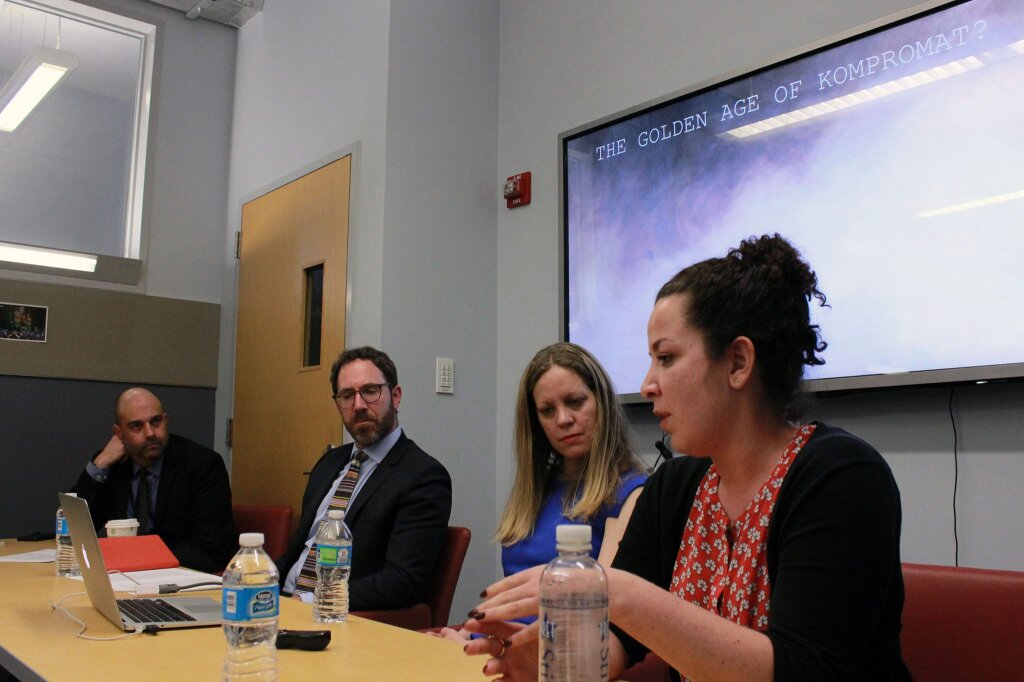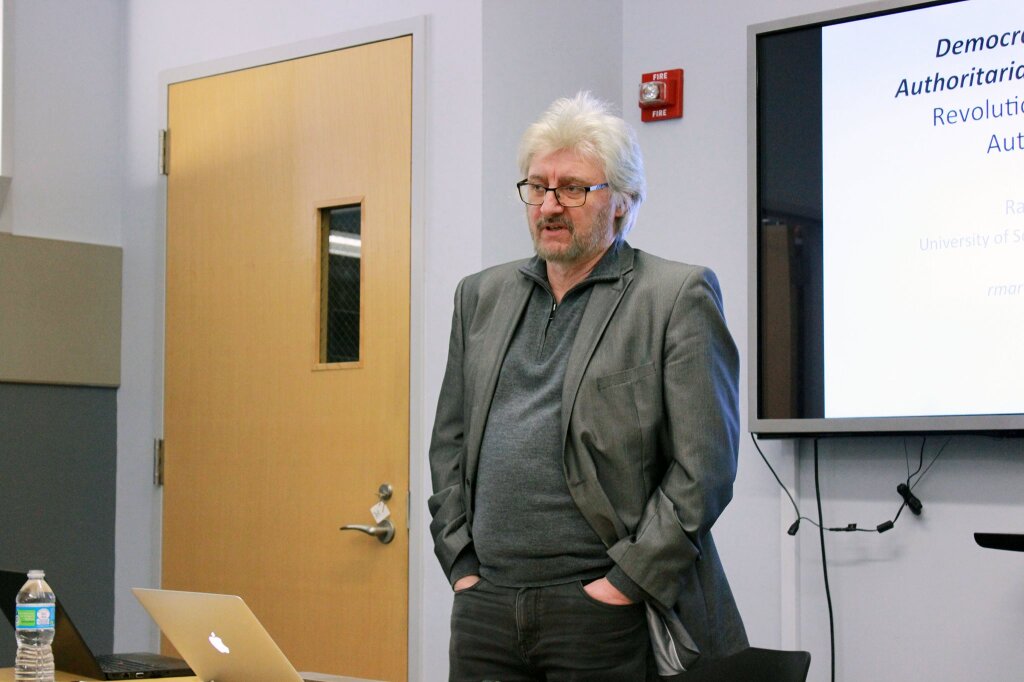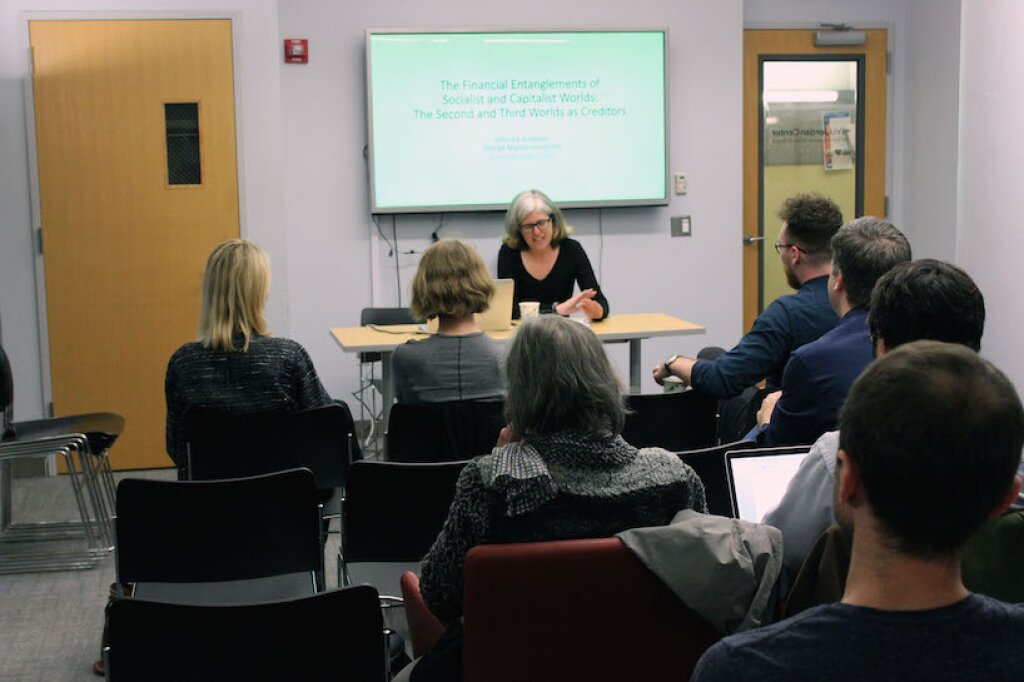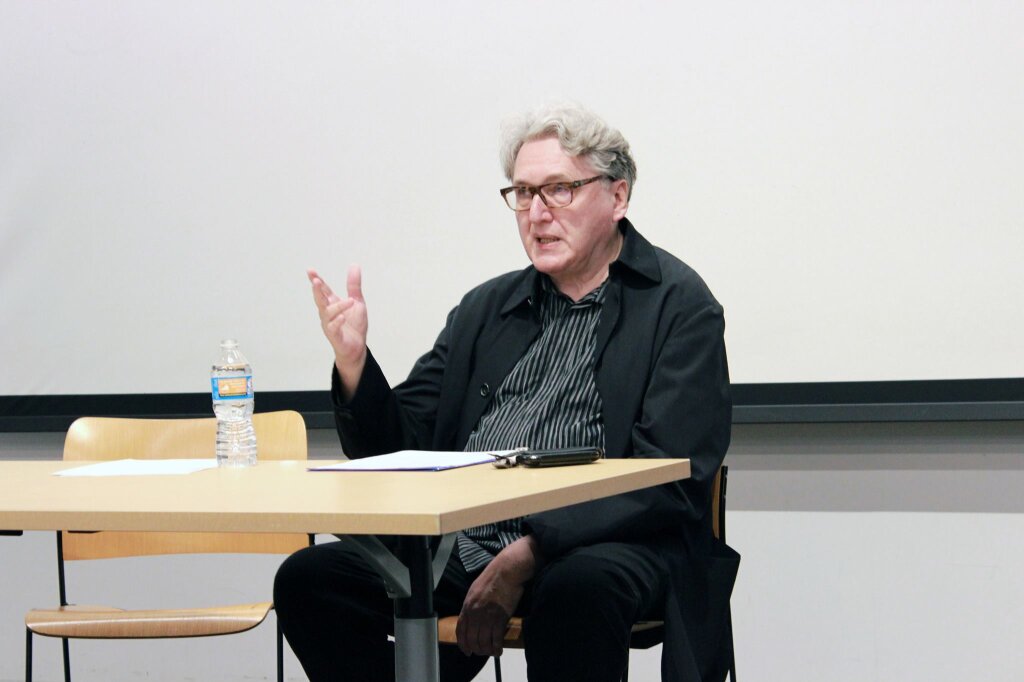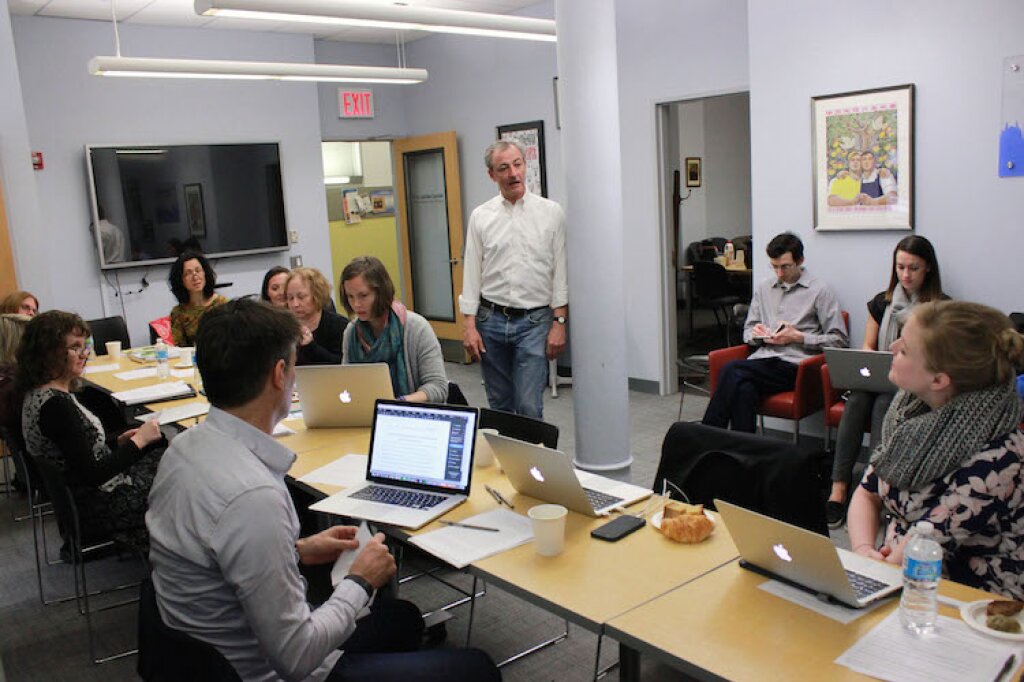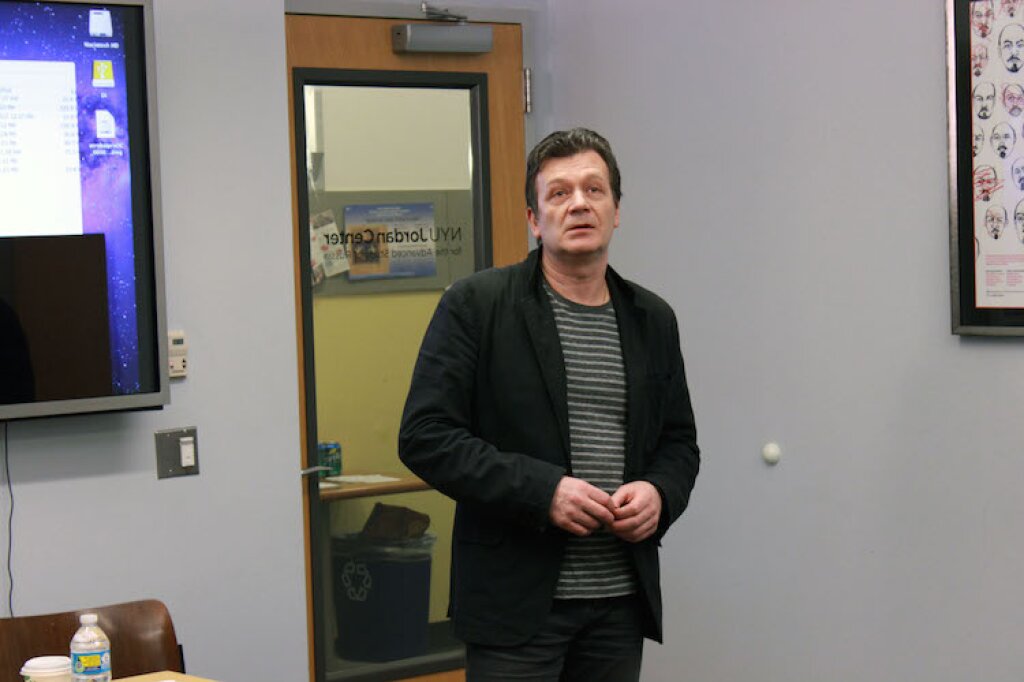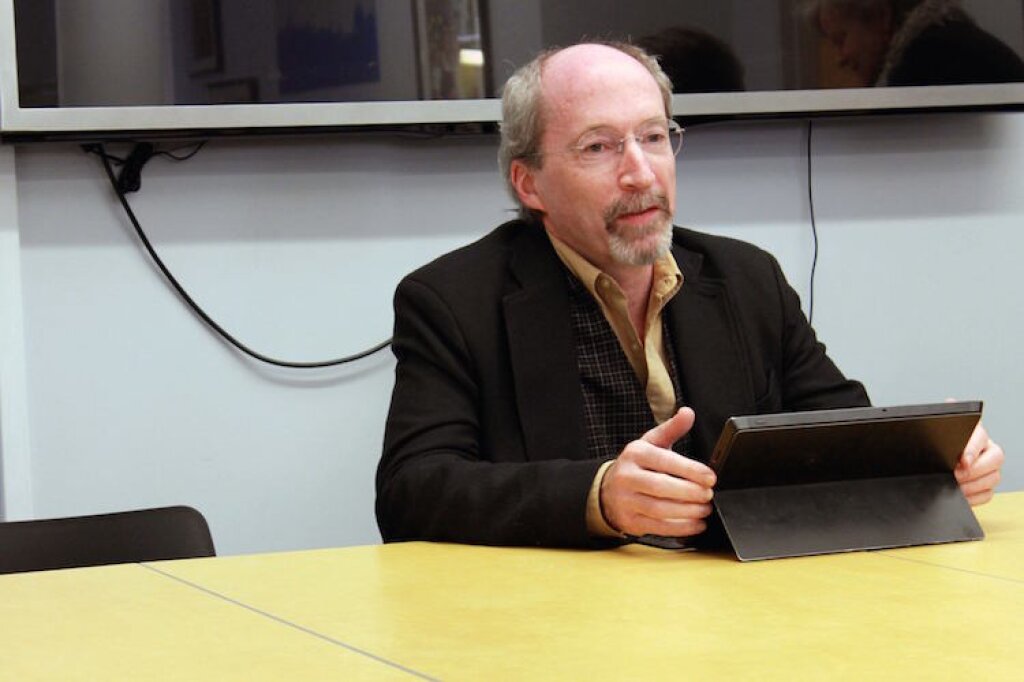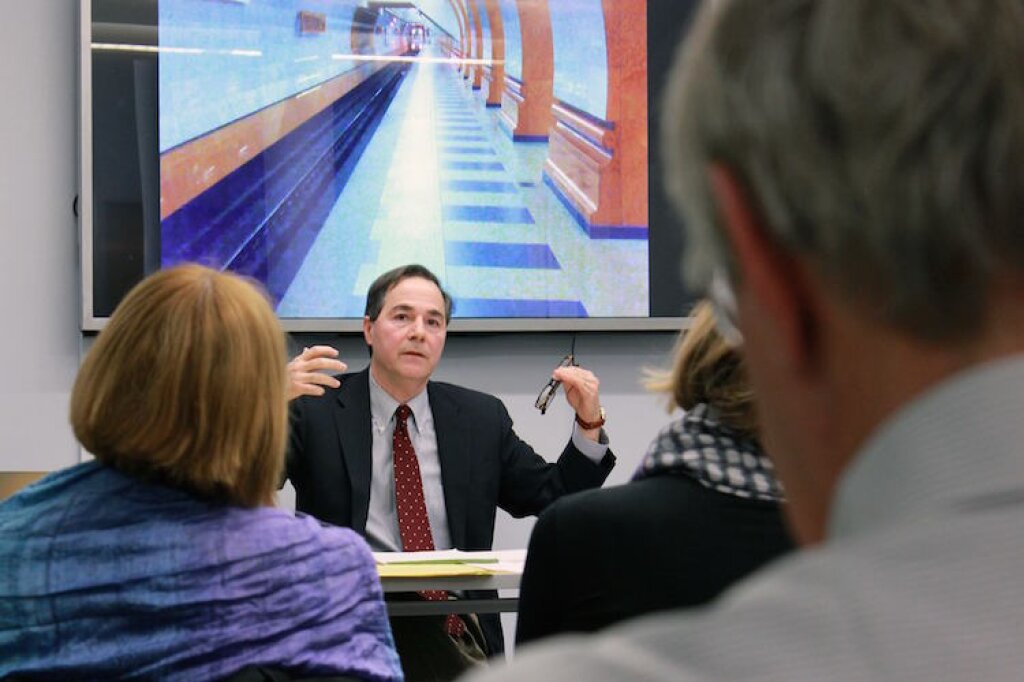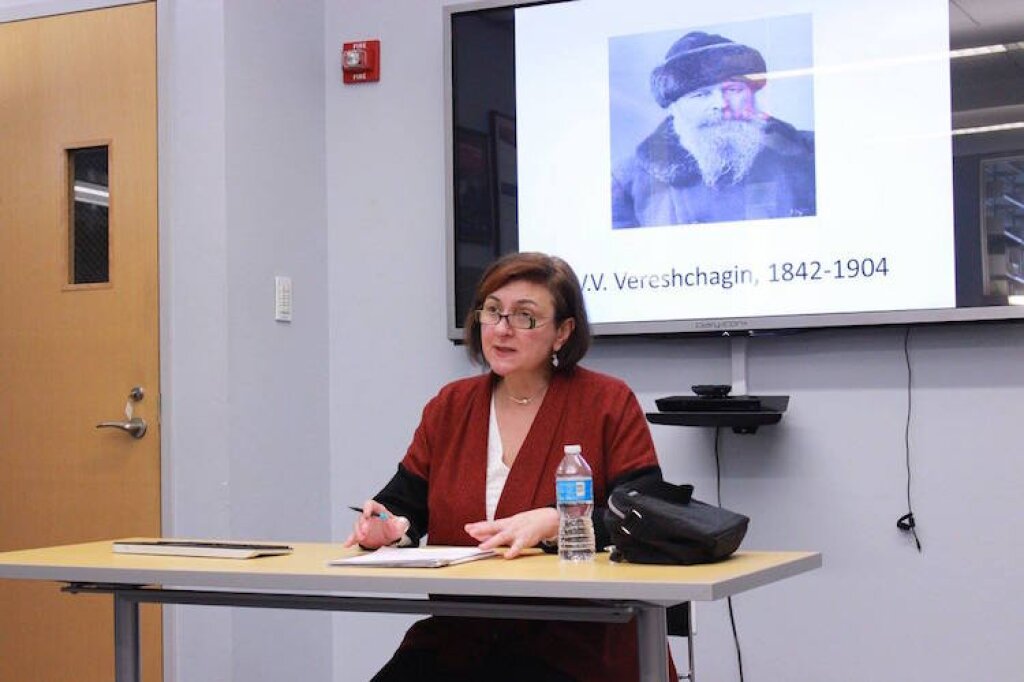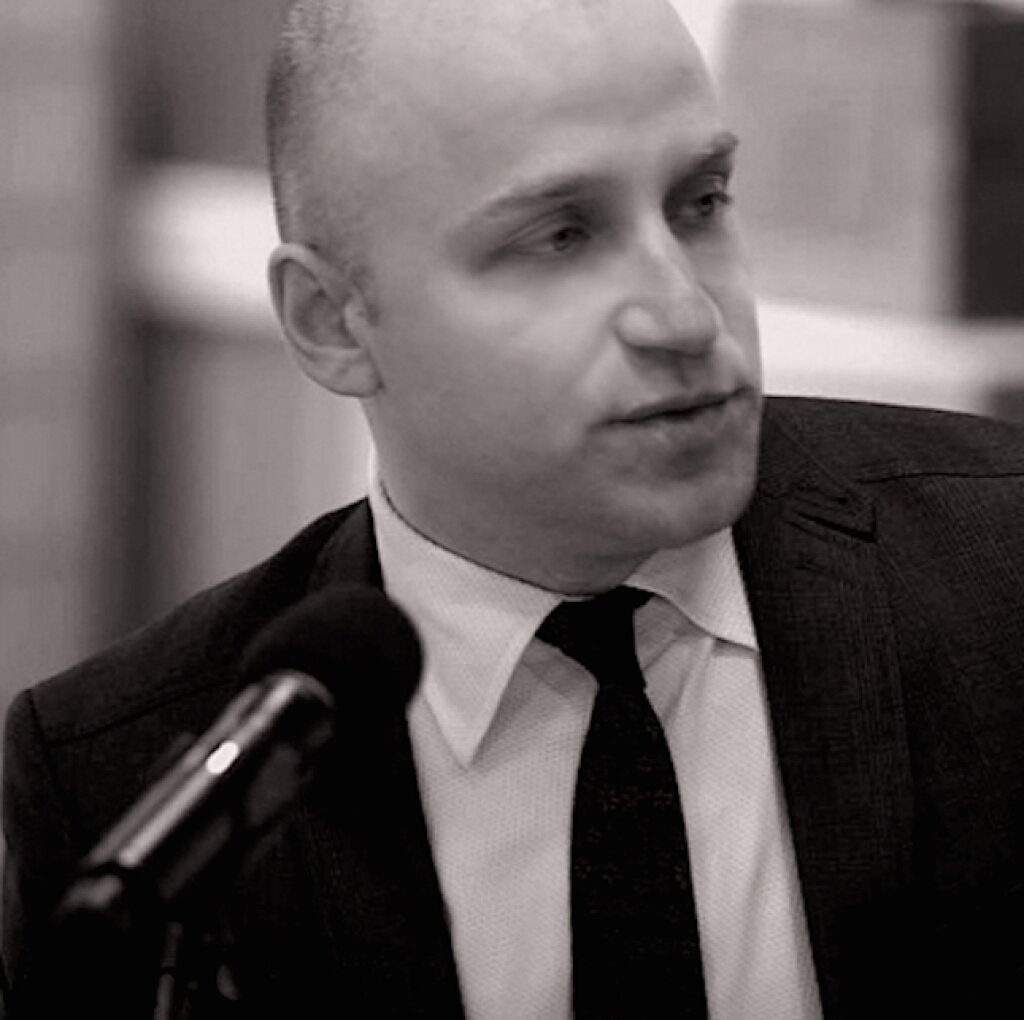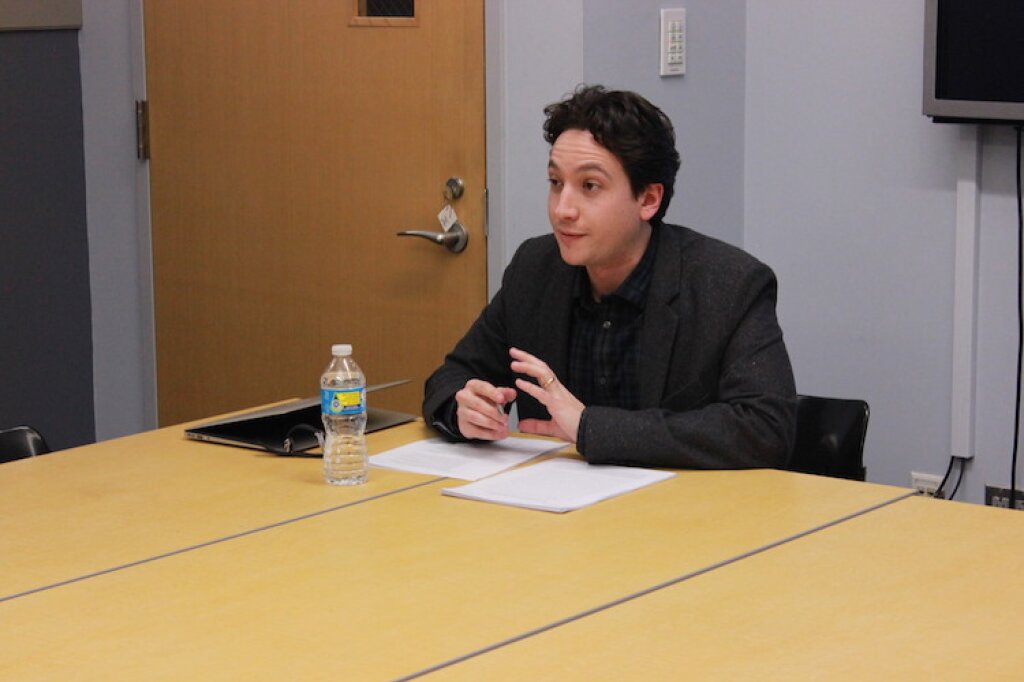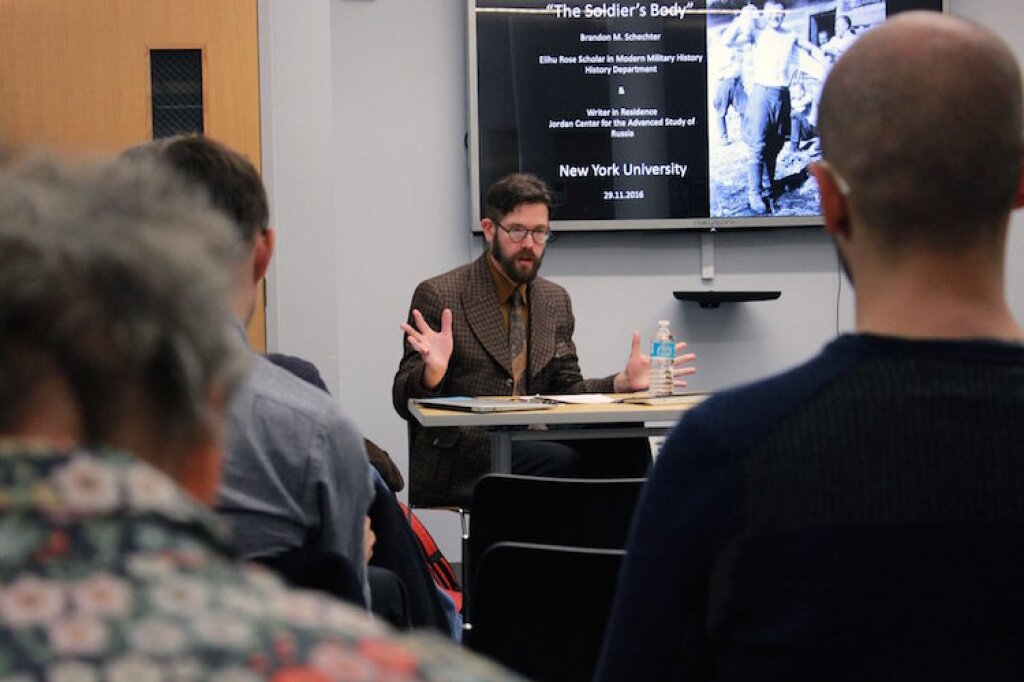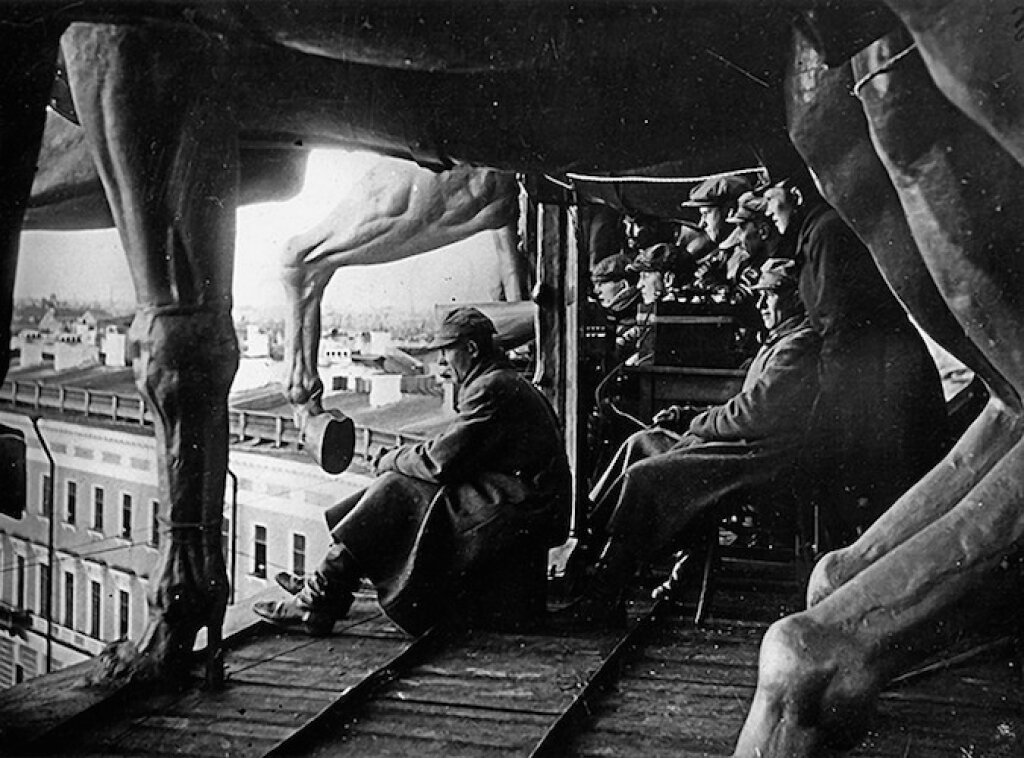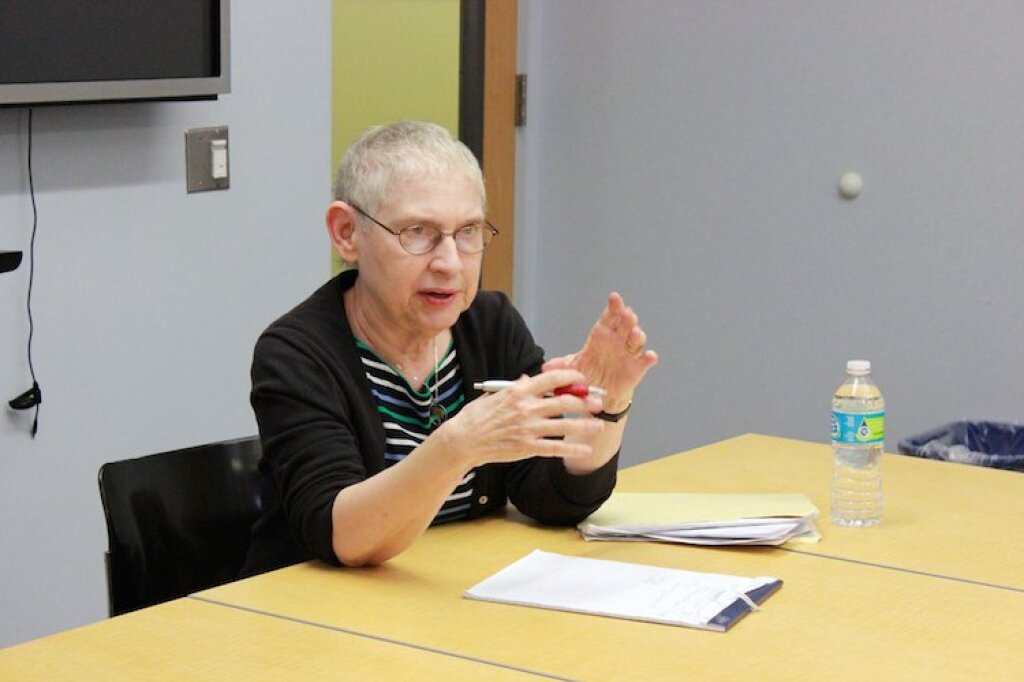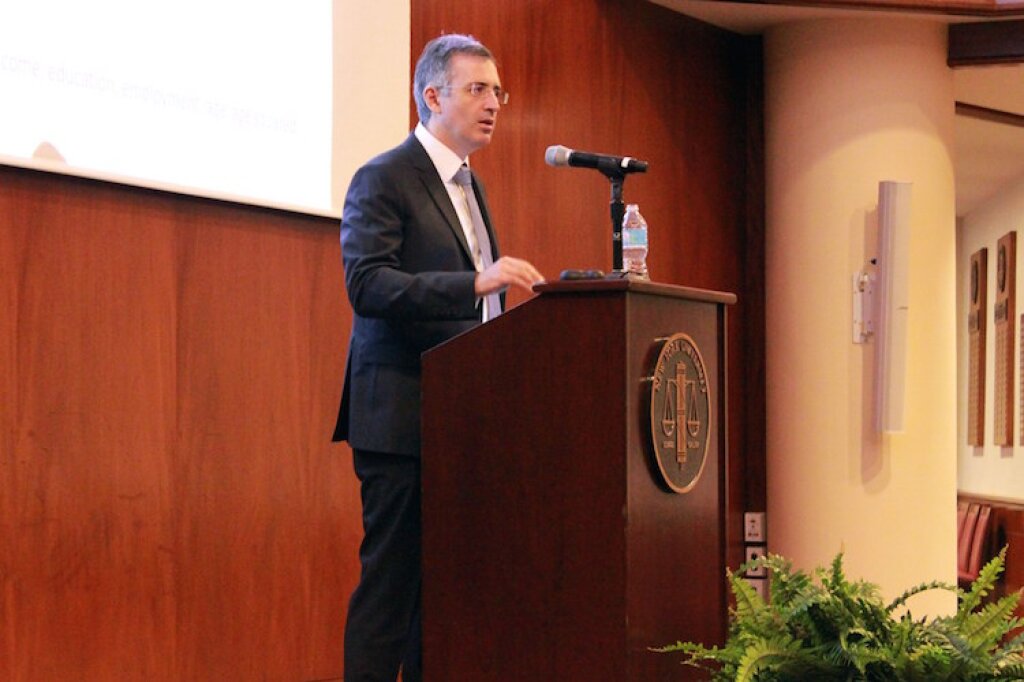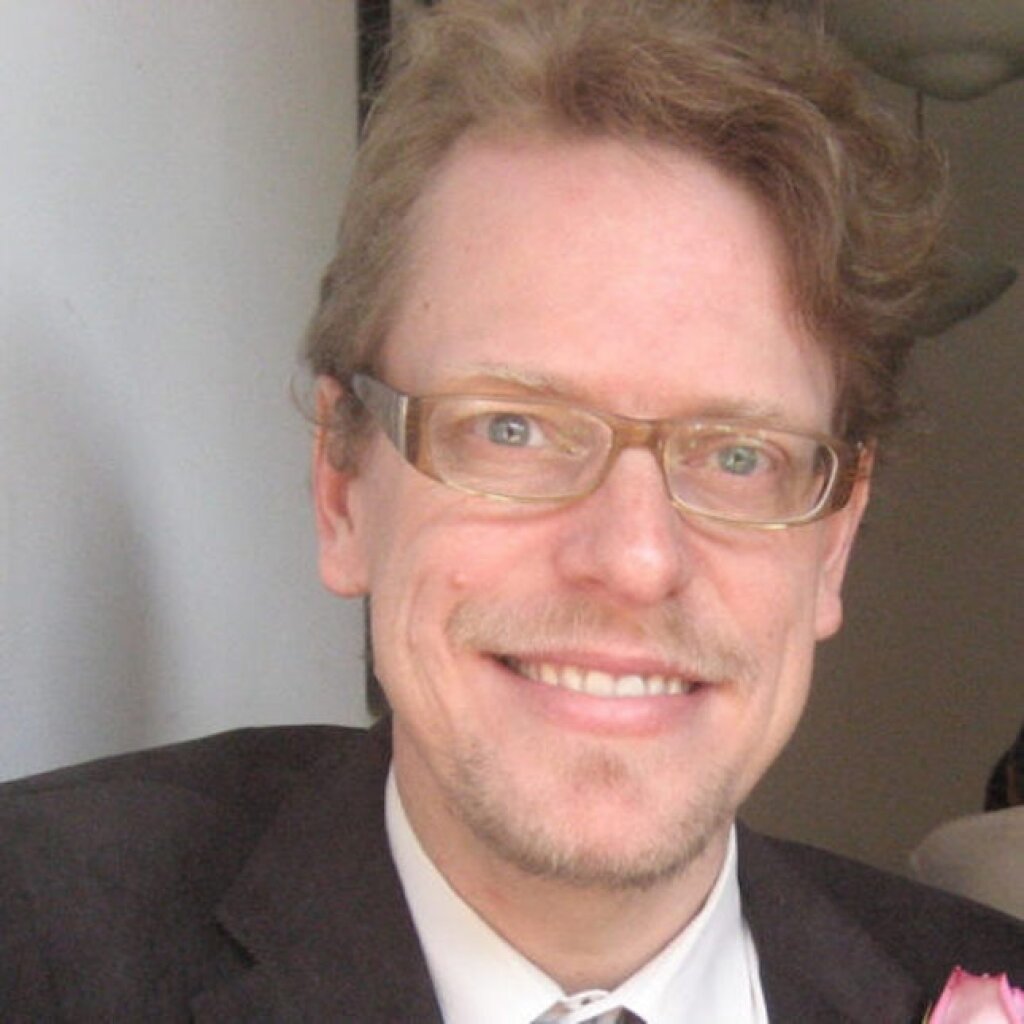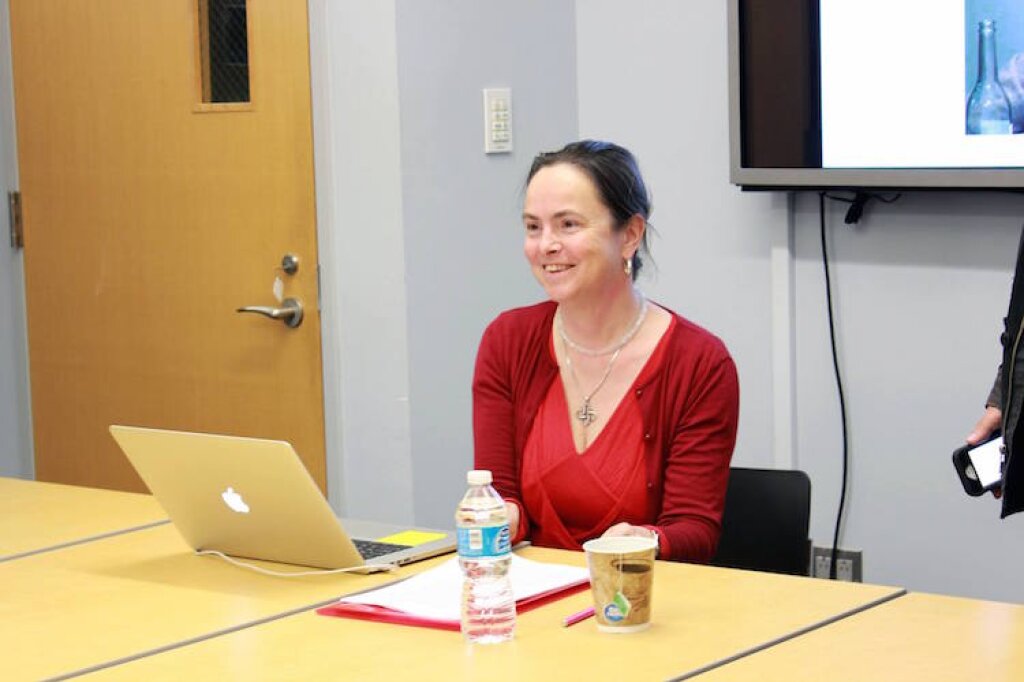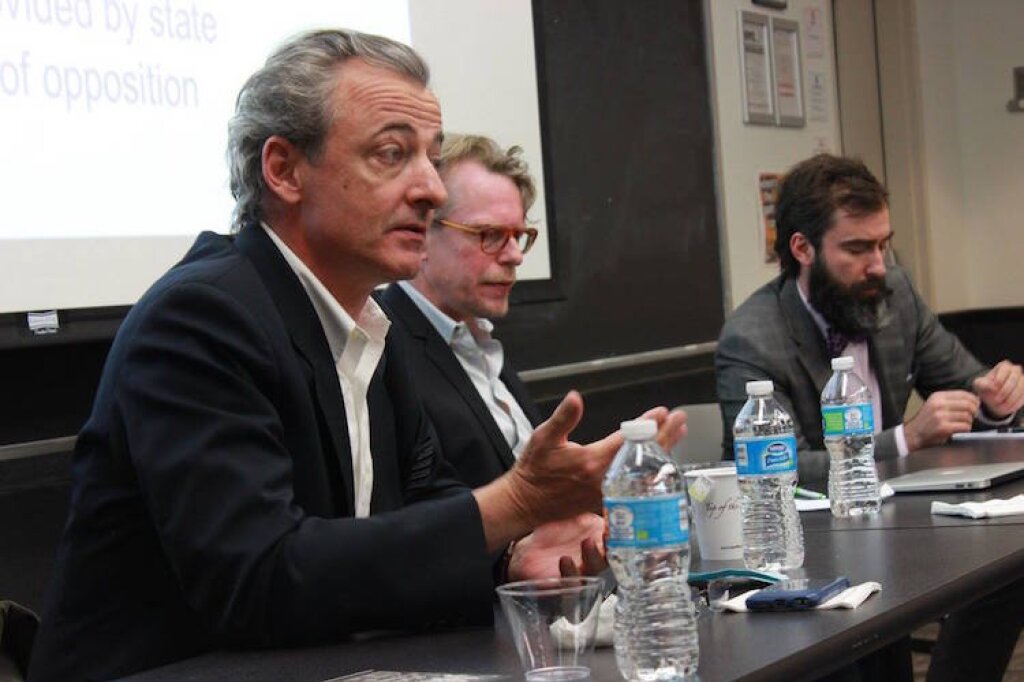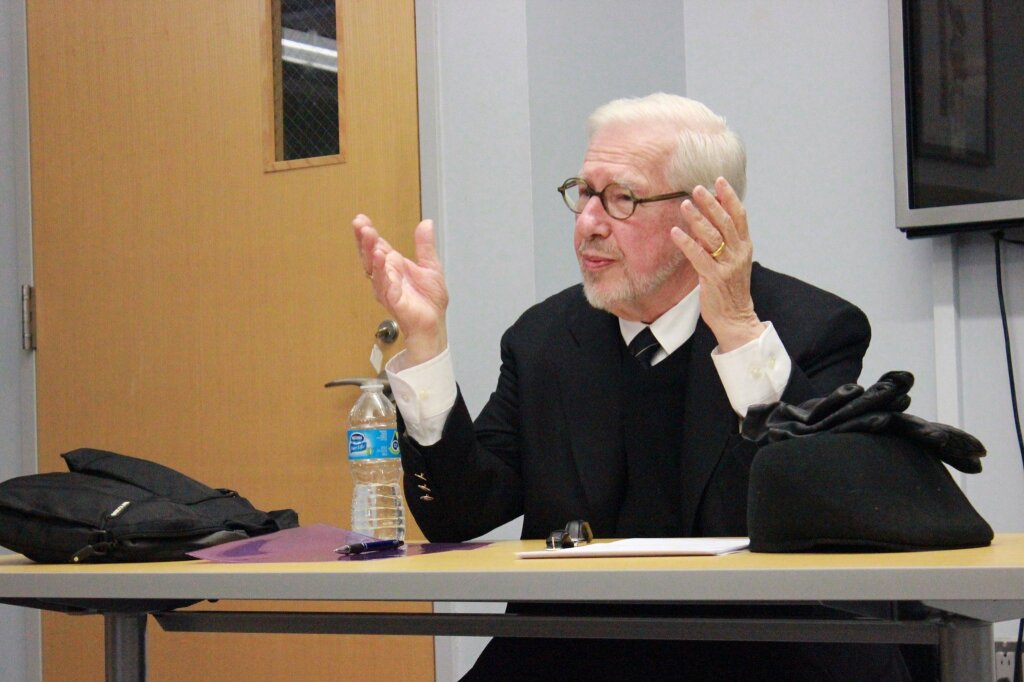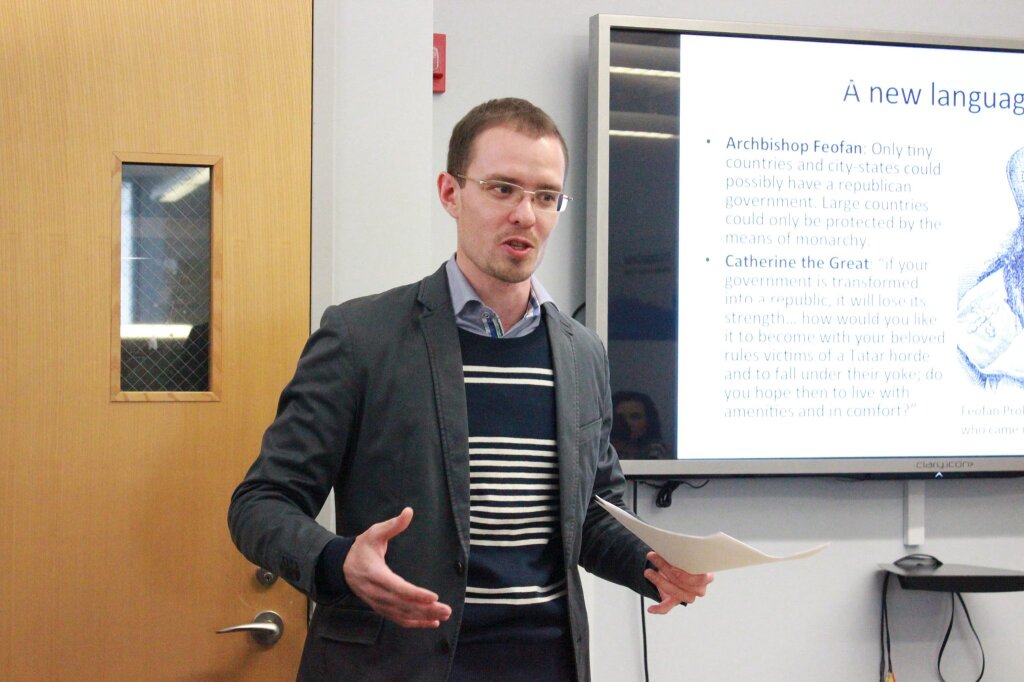Featured
Scholars, journalists discuss kompromat in today's setting
We self-generate kompromat all day long.
Radoslaw Markowski presents research on Polish politics after the October 2015 election
The last Polish election might have been the last election in a normal, democratic context.
Interdisciplinary humanities workshop addresses aspects of neoliberalism
We are still in a neoliberal society.
Boris Groys on the Russian quest for biopolitical utopias
What would happen if biopower were to eliminate death entirely?
Russian scholars explore the use of the term 'biopolitics' in Jordan Center-UCL workshop series
What work is biopolitics doing as a heuristic in the Russian field?
Aleksey Burago humanizes Chekhov and his impact on the Moscow Art Theater
The most important quality of Chekhov is his sense of humor.
Benjamin Nathans revisits the drama behind the Soviet dissident movement
We have the basic plot of the story, but we don’t know the drama behind the plot.
James Andrews on how the Moscow metro tells the story of socialism
There were no fortresses, which the Bolsheviks could not overcome.
Ada Dialla links Vereshchagin's art to the rise of humanitarianism in 19th-century Russia
Contributing to a “humanitarian narrative,” Vereshchagin’s work helped craft a bond between those who suffer and those who empathize with that suffering.
Elidor Mëhilli explores Albanian filmmaking across the 1960s Sino-Soviet split
Albeit brief, Albania was for a short while held up by China as a model for socialism.
Samuel Casper studies letters to Mikoyan to understand rehabilitation after the Great Terror
Once you’re stigmatized, castigated, reviled for social identity, how do you crawl your way back up?
Brandon Schechter looks at the Great Patriotic War Through Everyday Objects
The Soviet state reduced the soldier’s biography to the parameters that the army was interested in.
Ilya Budraitskis on what the 1917 revolution means to contemporary Russia
The way we can discuss revolutions is a political choice.
Diana Greene introduces her project on 19th-century Russian women's novels
Why are there no canonical 19th-century Russian women novelists?
Sergei Guriev's data analysis looks at the post-Soviet transition
The “transition happiness gap” is finally closed after 25 years.
Lucan Way argues that revolutionary origins led to Soviet durability
Revolutionary regimes have been among the most durable forms of authoritarianism in the modern era.
Catriona Kelly approaches "period zapoya" through cinema
On May 13, 2016, the NYU Jordan Center for the Advanced Study of Russia and the Tisch School of the Arts welcomed Catriona Kelly for the last colloquium of the...
Panel on Russian-Ukrainian conflict urges constructive dialogue and a global perspective
On May 4, 2016, the NYU Jordan Center for the Advanced Study of Russia and the NYU Russian Club held a panel discussion entitled “Beyond Political Games,” dedicated to the...
Slavic literary scholar Michael Holquist negotiates the many “Bakhtins”
On May 2, 2016, the NYU Jordan Center for the Advanced Study of Russia welcomed Slavic literary scholar Michael Holquist for a lecture entitled “On a Footnote in Bakhtin.” Holquist,...
Sergey Sokolov traces the history of republicanism in Russia's political thought
On April 29, 2016, the NYU Jordan Center for the Advanced Study of Russia welcomed Sergey Sokolov for a lecture on “The Emergence of Republicanism in Russia (18th – early...
Want to contribute a post? Pitch Blog Editor Maya Vinokour at jordan.center.blog@gmail.com!




